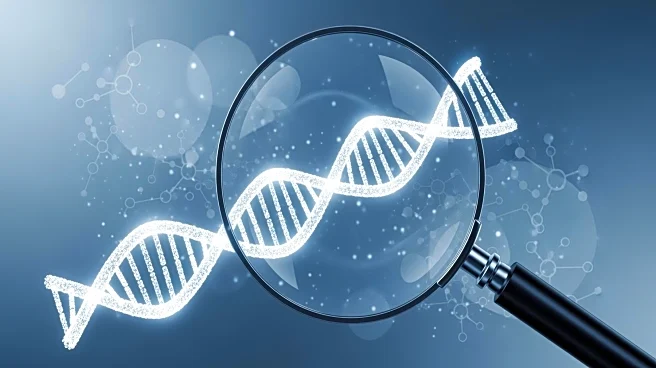What's Happening?
Recent research has uncovered intriguing findings regarding the cGAS protein in naked mole rats, which may have implications for aging and cancer prevention. The study, led by Zhiyong Mao in collaboration
with Baoxue Ge from Tongji University School of Medicine, discovered that cGAS, typically found in the cytoplasm, translocates to the nucleus in response to DNA damage. In the nucleus, cGAS localizes to DNA damage sites and inhibits homologous recombination repair, potentially promoting tumorigenesis. However, the study found that while human and mouse cGAS inhibited homologous recombination, naked mole rat cGAS enhanced it, suggesting a role in stabilizing the genome. This research highlights the unique properties of naked mole rat cGAS, which may contribute to the species' longevity and low incidence of cancer.
Why It's Important?
The findings from this study are significant as they offer insights into the mechanisms of genome stability and cancer resistance in long-lived species like the naked mole rat. Understanding how naked mole rat cGAS enhances homologous recombination could lead to advancements in anti-aging treatments and cancer prevention strategies. This research may pave the way for developing therapies that mimic the naked mole rat's genome-stabilizing properties, potentially benefiting human health by reducing the risk of age-related diseases and improving longevity. The study also underscores the importance of comparative biology in uncovering novel biological processes that could be harnessed for medical applications.
What's Next?
Further research is needed to explore the molecular mechanisms by which naked mole rat cGAS enhances homologous recombination and stabilizes the genome. Scientists may investigate whether these properties can be replicated or induced in human cells, potentially leading to new therapeutic approaches for aging and cancer prevention. Additionally, the study opens avenues for exploring other unique biological traits of the naked mole rat that contribute to its longevity and cancer resistance. Collaborative efforts between researchers in aging, genetics, and oncology could accelerate the translation of these findings into practical applications.
Beyond the Headlines
The study raises ethical and scientific questions about the manipulation of genetic processes for health benefits. While enhancing genome stability could have positive implications for aging and cancer prevention, it is crucial to consider the potential risks and unintended consequences of altering fundamental biological processes. The research also highlights the importance of preserving biodiversity, as studying unique species like the naked mole rat can lead to breakthroughs in understanding complex biological systems.









